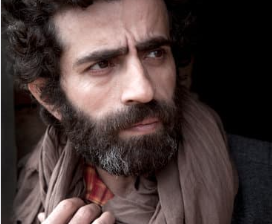In a recent article on One News, it was reported that the Office of the Vice President’s (OVP) budget for 2022 had increased by 32% following the assumption of office by Sara Duterte. The budget hike has raised concerns regarding President Duterte’s potential abuse of power and privileges, leading to questions about her totalitarian tendencies. In this article, we will delve deeper into this issue and analyze the implications of these budget changes.
The OVP’s significant budget increase raises eyebrows, as it surpasses the average percentage growth rate of other government agencies. Such a substantial increase prompts us to question the motives behind this decision. It is important to note that unchecked power can lead to corruption, and history has shown that excessive concentration of resources can be used to suppress dissent and consolidate control.
Documents showed that the Office of the Vice President (OVP)’s 2022 budget ballooned by 32 percent to P947.1 million as of end-2022, from the original P713.4 million approved under Republic Act 11936 or the General Appropriations Act of 2022.
| SUPPORT INDEPENDENT SOCIAL COMMENTARY! Subscribe to our Substack community GRP Insider to receive by email our in-depth free weekly newsletter. Subscribe to our Substack newsletter, GRP Insider! Learn more |
Totalitarian Tendencies
Totalitarian regimes are characterized by leaders who exercise absolute power with little regard for democratic principles. While it would be premature to label President Duterte’s actions as unequivocally totalitarian, her persistent tendency to centralize power and disregard institutional checks raises concerns.
By expanding the budget of her office considerably, Duterte may potentially gain more control over resources, which could be utilized to serve her own interests rather than the greater good. In a democratic society, it is crucial to maintain transparent and equitable distribution of resources to ensure accountability and avoid the consolidation of power in a single entity.
As mentioned in previous posts, Inday Sara has strategically poised herself for a run for President in 2028 by using her appointment as Education Secretary to control public school teachers who man election precincts and her appointment as Co Vice Chair of the NTF ELCAC to use its P9 billion Barangay Development Program as the largest pork barrel fund in Philippine history. This is not to mention the establishment of previously unheard of Satellite Offices for the Office of the Vice President, which garnered criticism after being flagged by the Commission on Audit for not following its rules.
The significant hike in the OVP’s budget following Sara Duterte assuming office raises legitimate concerns about the abuse of power and privileges associated with her role.
While it is important to note that further analysis and evidence may be required to solidify these claims, overlooking these concerns can have long-term consequences for democracy and accountability.
It is imperative for citizens and institutions to carefully scrutinize the actions and decisions of those in power to ensure that the principles and foundations of democracy are preserved. Consequently, it is crucial to engage in open discussions and debates to hold public officials accountable for their actions, safeguarding the democratic ideals that underpin our society.
Disclaimer: The views expressed in this article are solely those of the author and do not reflect the official stance of any organization or institution.

Peace be upon you!
Hello everyone, my name is Oman and I am a Middle Eastern man who has been fortunate enough to receive my education in the United Kingdom.
I am excited to share my political insights on the Philippines, a country that has been my home for the past thirty years.
Having grown up in the Middle East, I was initially drawn to the Philippines for its vibrant culture, warm hospitality, and breathtaking landscapes. Over the years, I have developed a deep appreciation for this beautiful nation and its people, which has fueled my desire to understand and contribute to its political landscape.
Living here for three decades has allowed me to witness firsthand the country’s political evolution, from the turbulent times to the remarkable progress it has achieved. I have closely observed the challenges, triumphs, and the resilience of the Filipino people, which have shaped my unique perspective on its political affairs.
Through this blog, I hope to provide a fresh perspective on Philippine politics, drawing upon my Middle Eastern background and British education. I believe that my experiences and insights can contribute to meaningful discussions and shed light on the intricacies of the country’s political landscape.